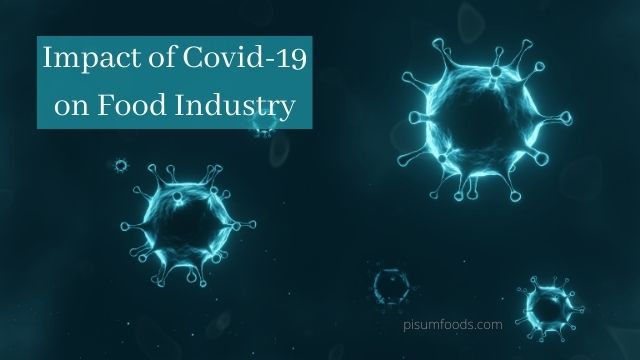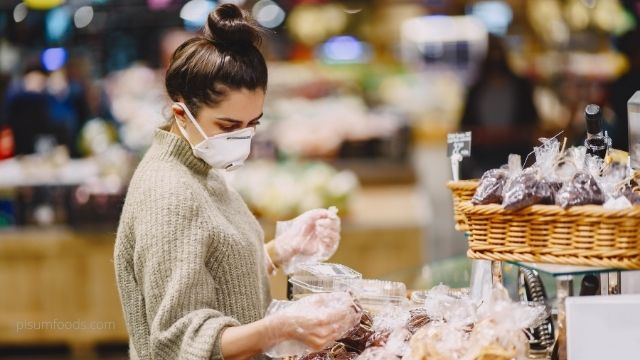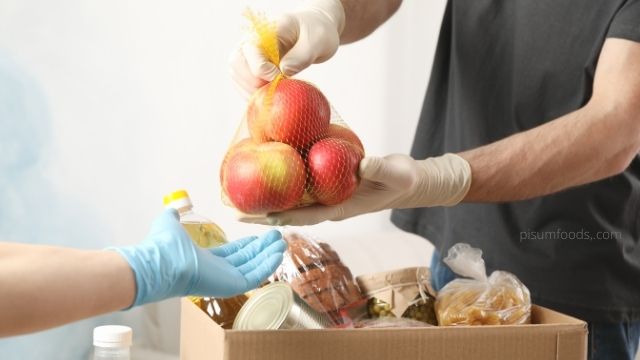 Translate
Translate Translate
TranslateThe global pandemic caused by the coronavirus has stagnated the world. Each industry be it manufacturing, retail, consulting and so on is facing the brunt of this virus. The COVID 19 impact on the global food industry has been huge. The Food industry is a very important industry and has to be working even if the country is in a lockdown situation. Thus they have to take extra care and precautions to supply good quality products to their customers in this pandemic. Many questions are being asked about the impact of this virus on the food industry. For instance, can the coronavirus be transmitted through food or packing, how much risk does this virus pose to the food industry, are some important questions that need to be addressed. In this blog, we will try to answer some of these questions about the coronavirus impact on the food & beverage sector.

As the world is suffering in this global pandemic, it is important to increase awareness and knowledge of the potential implications of the COVID 19 pandemic especially on global food security and access to nutritious foods. There is an urgent need to ensure that this health crisis does not morph into a food crisis. Being in the midst of a crisis where saving lives is our priority, the short- and long-term impacts on global food security caused by this pandemic have to be understood too. The adverse impacts on global food security is a major negative impact of COVID-19 on the global food sector. Prioritizing food and nutritional security is a duty of the governments today to curb the long-lasting effects of this virus.
This is one of the most asked questions about COVID 19 and its transmission through food. Most of us are going out to buy food products some times a week. If the coronavirus is being transmitted through food packaging, it may lead to several additional problems. But as of now, there has been no evidence that food or food packaging is a likely source or a possible route of transmission for the coronavirus disease.
This is according to the World Health Organization, the Food and Drug Administration and the Centers for Disease Control and Prevention. Other experts also state that it is highly unlikely that people can contract COVID 19 from food or packaging. COVID 19 is primarily a respiratory disease and thus the transmission route is through person to person contact or through direct contact with respiratory droplets of an infected person. Thus, as of now, we can say that there is no evidence that the coronavirus can be transmitted through food or packaging.
The coronavirus challenges for the food industry are numerous. As this industry is directly related to what we consume, taking proper health and safety precautions is essential. Companies that sell mostly to the foodservice and restaurant industry are the worst hit due to the closure of restaurants. The food manufacturers and suppliers need to ensure that they keep their employees safe and healthy. They should conduct regular checks including temperature checks and maintain a proper record. Calling workers on alternate days or in batches may also help and it would be thus easier to maintain social distancing. It’s necessary for these companies to revisit and potentially even step up their internal policies such as paid sick leave, health and safety policies and procedures, and stay-at-home policies.

According to some experts, the risk associated with person-to-person transmission of COVID-19 in the food industry is low due to the regulatory and third-party audit, safe manufacturing practices and so on that specifically address the exclusion of persons with any infectious diseases from the food-processing environment. The risks of COVID 19 can be seen from each industry, thus the only thing entrepreneurs can do is take the best precautionary measures and take proper care of all their employees. We will obviously learn more about the risk of COVID 19 to the food industry as the research progresses. But most food manufacturers and suppliers are taking the utmost care to make sure that the food products are manufactured and packed with the least amount of risk and exposure.
Agricultural produce and livestock is a key raw material for the food industry. Without good crops, fruits, vegetables, meat and such other products, it would be very difficult for the food companies to function. The impact on the supply of these raw materials can affect the food industry to a great extent, especially the countries which import these items from abroad. Issues like poor logistics due to traffic control and restrictions on public movement in various parts of the world can lead to supply disruptions.
The impact of this reduction in supply may have long term effects on global trade for not only the countries which import food products and raw materials but also for countries which export them. These restrictions can lead to a significant impact on the agriculture industry of the importing countries, motivating businesses to explore alternative sourcing partners. Thus the countries which earlier exported raw materials may end up losing up their business.
How will COVID pandemic affect the global food demand?
The global food demand has seen some unprecedented rise and fall lately. This clearly shows how COVID pandemics affect the global food demand. At first, as the lockdowns were imposed in various countries, the food demand rose due to the unprecedented announcements and the fear of not being able to go out. People engaged in what we call ‘panic buying’ where they bought many more products than they would previously have. But as months passed, another trend was noticed. In poorer countries, food demand also depends on the daily income of the people. As this income reduced or even stopped in some cases, people did not have enough money to buy food or such other necessities.
Visits to supermarkets, restaurants, takeaways and so on were also limited due to the fear of the virus. The strict measures implemented by most countries have also had adverse effects on agriculture, trade, livestock and such other areas. Thus, measuring the exact impact of the COVID 19 pandemic on the global food demand is difficult, but the above factors can be assessed to come to a probable conclusion.

The food industry is a key industry in our lives. Even if the country is in a lockdown, people need to eat food to survive. Thus, even if the effect of the coronavirus on the food industry is huge, they have to find quick solutions and keep working. The Food industry has now been developing responsive actions and effective plans in order to fight and mitigate the risk caused by a coronavirus. They have to consider various factors right from food manufacturing precautions to safe delivery mechanisms.
Most companies established an interdisciplinary crisis response team to consider all the aspects of the business and to identify, assess and manage various types of risks caused by the coronavirus. For instance, regular checks of the workers working in the factories, installing sanitisers and disinfectants in the manufacturing plant and offices, contactless deliveries are some of the measures put in place by many food companies to supply the best quality products to their customers.
Many food safety measures are being implemented to help ensure food safety and quality of the food products. The food companies are continuing to follow the current good manufacturing practices to keep the quality of the food products intact while also maintaining the health and safety regulations. For the safety measures to follow for food products, five key elements have to be considered. They are the five ‘Ps’, people, premises, processes, products and procedures.
These five elements are the key considerations a company or the industry as a whole is making while deciding policies and measures for health and safety. The food manufacturers are also following risk-based food safety plans such as the HACCP. The food manufacturers are now well aware of the risks of the virus and the importance of taking regulatory and precautionary measures in order to safeguard the health of their customers and employees.
Pisum is one of the leading global food importers and exporters based in India. We at Pisum foods understand this uncertain situation and are taking various efforts to export food products with safety measures. Our executives at Pisum will help you with the entire process of export until the final delivery of the products. We have extensive experience in the field of Food export and make sure that the export process is hassle-free for our clients. We export premium quality products and adhere to all health, safety and quality standards. Thus, we are also accredited to TPCI, APEDA and such other certifications. We make sure that your products are delivered in a timely manner so that when they are delivered they are fresh and healthy. If you are looking for food exporters from India, Contact Pisum now!